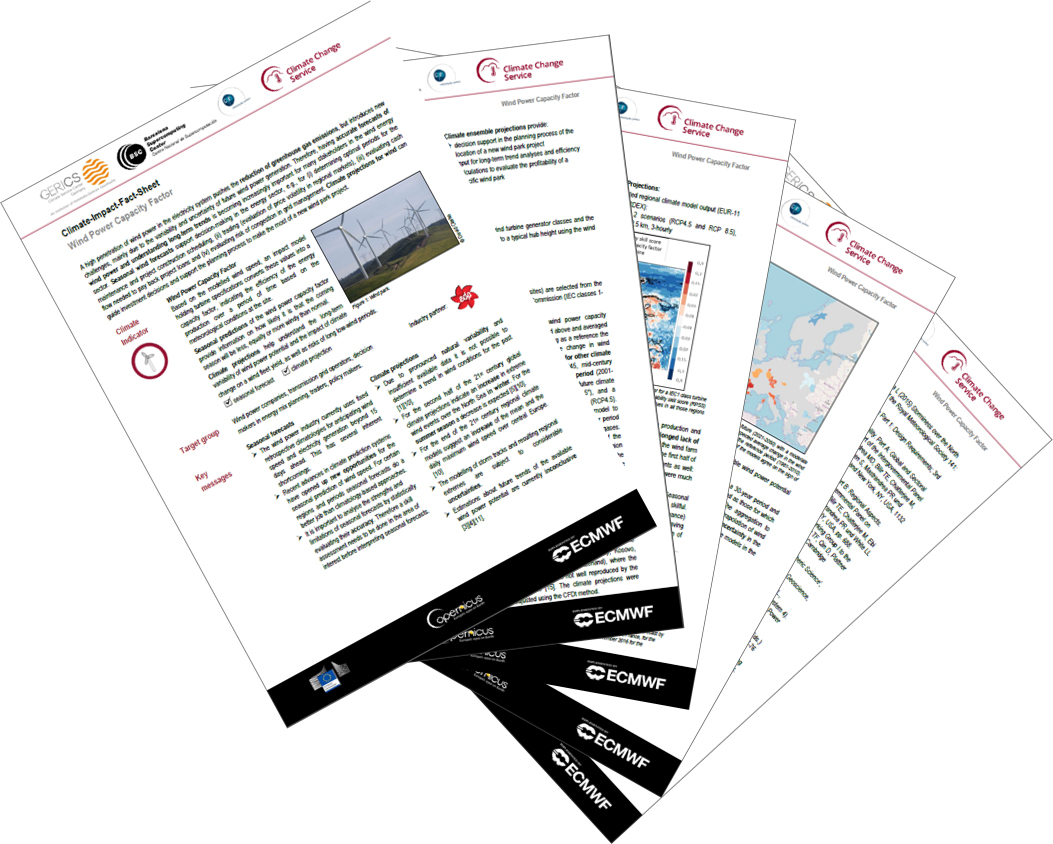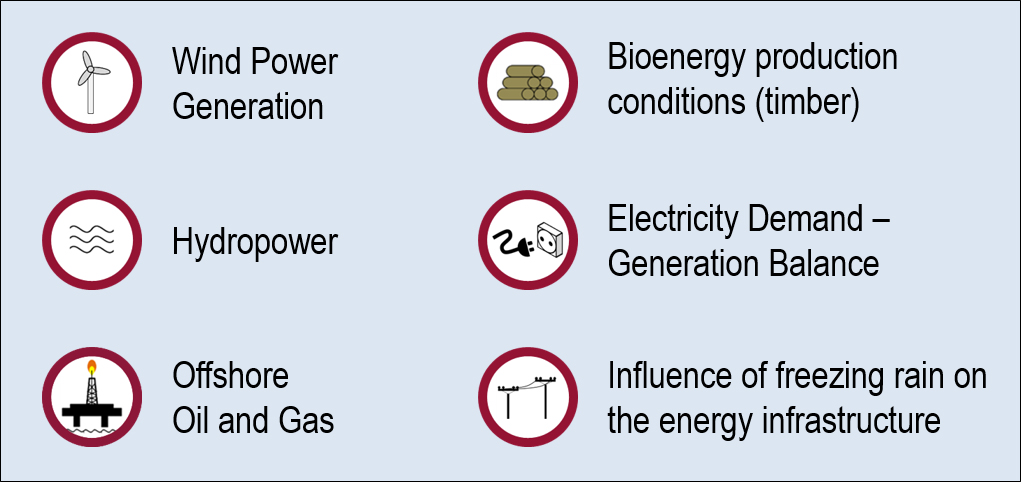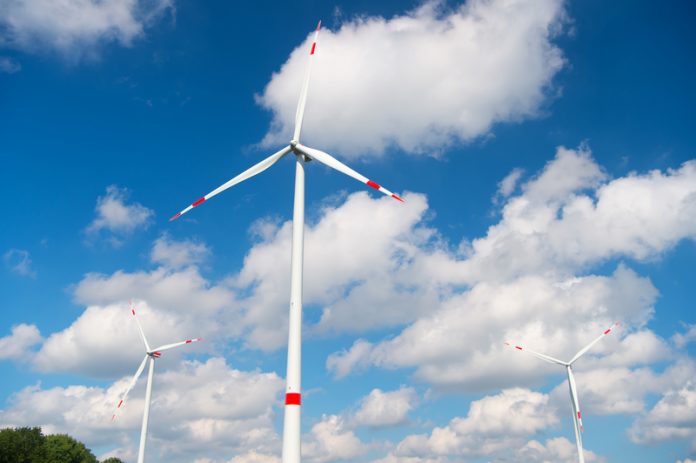Climate Service Center Germany (GERICS) explores the degree to which climate change impacts the energy sector in Europe
The challenge to guarantee energy supply long-term is central for today’s energy sector in Europe. With climate change, this challenge is taking on a new dimension. To reduce greenhouse gas emissions, major efforts are underway to shift to renewable and clean energy sources. Many of these new energy sources, such as wind power or solar power are highly dependent on the weather. To be able to assess and secure long-term energy production and distribution, changes in the climate and the related impacts have to be considered when evaluating the potential for energy generation in different regions. This includes, for example, regional assessments of wind speed trends and the expected change in the intensity of solar radiation, a comparison of the future energy demands, along with the projections for wind and solar energy generation, or examining the impact of extreme weather, such as freezing rain, on transmission lines and other aspects of energy infrastructure.

Energy suppliers and transmission system operators are becoming more and more experienced with handling short-term weather data, especially to estimate the upcoming, immediate demand and to determine the best energy mix to meet this demand. For medium- to long-term planning purposes, a look beyond the weather forecast of a few days, at seasonal forecasts and climate projections, can help avoid unpleasant surprises. However, there are a number of different factors that play a role to appropriately account for the regional impacts of climate change. Since energy companies focus on energy production or distribution as their core business, there is only rarely time or resources left to assess climate change in detail.
So, what if there was a place, where the most relevant information for the energy sector on regional climate change impacts was stored – easy to access and to understand?
Indeed, there is such a place: GERICS further developed its well-established methodology to create country Climate-Fact-Sheets and designed sector-specific Climate-Impact-Fact-Sheets. The first set of sector-specific Climate-Impact-Fact-Sheets look at the energy sector in Europe (see Figure 1). In this case, a set of six Fact Sheets were developed, focusing on very specific topics (see Figure 2).
Each Climate-Impact-Fact-Sheet shows a brief summary on the first page: it outlines the purpose of the Fact Sheet in context, along with the sector of interest and introduces the indicator used to estimate the relevant climate change impacts. This is combined with a quick overview of the most important key messages regarding climate change research for this indicator, and the practical implications for the respective industry. The following three to four pages provide more details on the methodology used to estimate the impact indicator, indeed, they show a case study highlighting some possible applications of the indicator and embed the content in the broader European context.
The Fact Sheets are complemented by a focus paper, providing a general overview regarding expected impacts of climate change on the six topics related to the energy sector shown in Figure 2. It further includes statements by representatives of the energy industry highlighting the importance of regional climate information and knowledge for their line of work.

The well-established Climate-Impact-Fact-Sheet methodology was applied in cooperation with a number of European research institutions and the energy industry, within the framework of the Copernicus Climate Change Service contract Clim4Energy. As part of the Sectorial-Information-System, Clim4Energy is a proof-of-concept project that delivered nine energy-relevant pan-European indicators of climate trends and variability. The indicators are consistent across the different energy subsectors, allow for uncertainty estimations and are well documented. Guidance material demonstrates possible applications.
A visualization tool developed as part of the contract allows users to look at simple statistics on climate variables and energy indicators. Advanced data sets can be synthesised and downloaded in an easy and accessible way.
Clim4Energy was coordinated by the French Alternative Energies and Atomic Energy Commission (CEA). CEA partnered with the National Center for Scientific Research (CNRS), the Barcelona Supercomputing Center (BSC), the Finnish Meteorological Institute (FMI), Météo France, the U.K. Met Office, the Swedish Meteorological and Hydrological Institute (SMHI) and the German Climate Service Center (GERICS). From the industry, Clim4Energy was joined by the following energy companies: EDPR, FINGRID Oyj, METSÄTEHO OY, Montel, RTE – FRANCE, SHELL, STATKRAFT, TOTAL and VATTENFALL.
Further information is available under http://clim4energy.climate.copernicus.eu/ .
Please note: this is a commercial profile
Elisabeth Viktor
Author and Contact
Climate Service Center Germany (GERICS)
Tel: +49 (0)40 226 338 0











